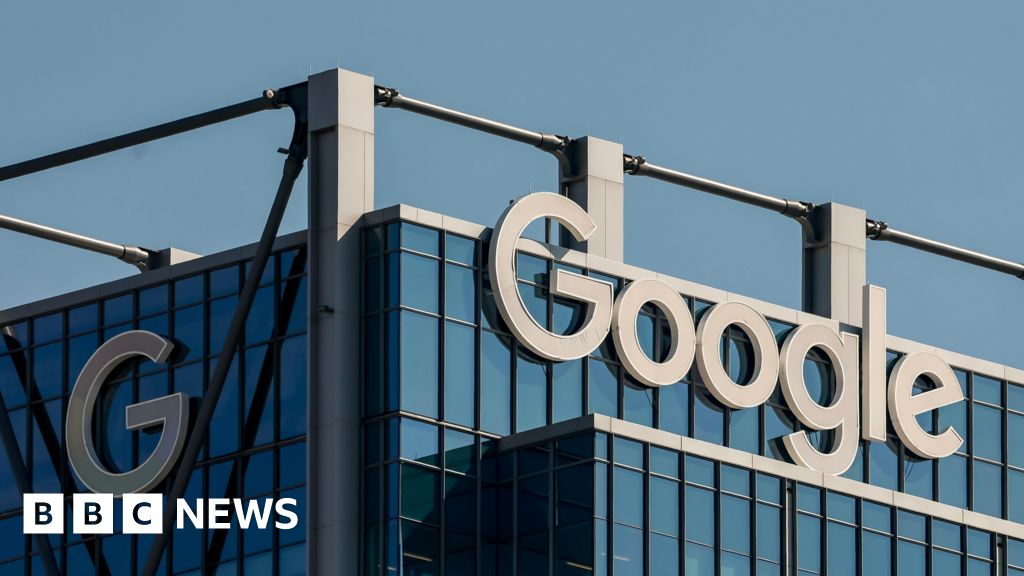Google’s lucrative ad tech business goes on trial

The US government is taking aim at the engine of Google’s immense wealth – its extremely lucrative ad tech business.
A trial beginning on Monday will hear the Department of Justice’s case that the search engine’s parent company Alphabet illegally operates a monopoly in the market.
The company earned more than $200 billion (£152bn) last year through the placing and selling of ads seen by internet users.
Alphabet has argued its success is due to the “effectiveness” of its services – but prosecutors say it has used its market dominance to stifle rivals.
“It is a really important industry that grabs billions of consumer dollars every year,” said Laura Phillips-Sawyer, a professor at the University of Georgia School of Law.
“I think all consumers have an interest in this litigation.”
It is the second major antitrust case the tech giant has faced in the US.
In August a judge ruled its dominance of search was illegal, with the penalties Google and Alphabet will face as a result of that decision so far unclear.
According to the lawsuit filed by the Department of Justice (DoJ) and a coalition of states in 2023, Google dominates the digital ad marketplace and has leveraged its market power to stifle innovation and competition.
Google meanwhile contends it is just one of several hundred companies that facilitate the placement of digital ads in front of consumers.
It argues that competition in the digital ad space is growing, not contracting – citing increased ad growth and revenues for companies such as Apple, Amazon and TikTok as proof in a blog post responding to the DoJ’s lawsuit in 2023.
Both sides will present their cases to US District Judge Leonie Brinkema, who is expected to deliver a verdict.
The bench trial comes on the heels of a landmark decision last month in a different monopoly case brought by the Justice Department against Google.
Judge Amit Mehta ruled that Google acted illegally to squelch competition in its online search business.
“Google is a monopolist, and it has acted as one to maintain its monopoly,” he wrote.
During last year’s trial, Google said it dominated online search because it had a better product.
And the company is seemingly deploying a similar defence in the ad tech case.
When asked for a statement, it referred the BBC to its 2023 blog post, in which it states that “no-one is forced to use our advertising technologies – they choose to use them because they’re effective.”
Judge Mehta held a status conference on Friday as he begins the process of deciding on remedies for Google’s conduct.
“The DoJ clearly had a big win, and they’re going to ride that momentum,” Dan Ives, managing director at Wedbush Securities, told the BBC.
He said he expects those remedies to involve “business model tweaks, not a breakup” of the company.
Meanwhile, in Justice Brinkema’s courtroom, the arcane process that governs advertising technology could make the DoJ’s attempts to prove its case an uphill climb.
“We all use search. We all intuitively understand that product,” said Rebecca Haw Allensworth, an antitrust professor at Vanderbilt University Law School.
By comparison, advertising technology is “so complex that I think that’s going to be a real challenge for the government to make a clear, simple monopolisation argument here.”
The US is not the only country where regulators are unhappy with Google’s ad tech business.
On Friday, the UK Competition and Markets Authority said it believed Google was abusing its dominance in the ad tech industry, according to the findings of its initial investigation.
It said it found that Google used anti-competitive practices to dominate the market for online advertising technology – and the potentially unlawful behaviour could be harming thousands of UK publishers and advertisers.
A Google representative said the decision was based on a “flawed” understanding of the ad tech sector.
